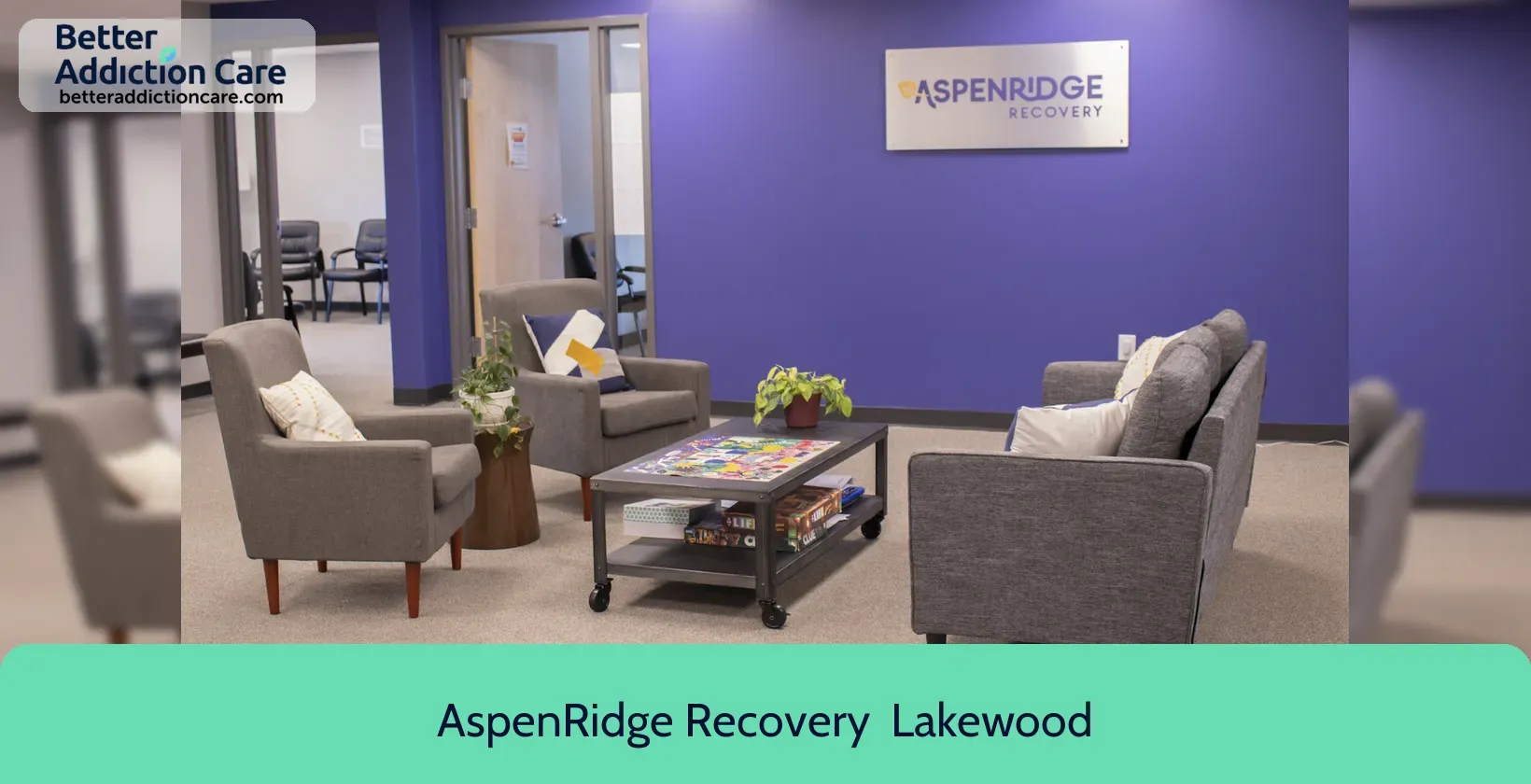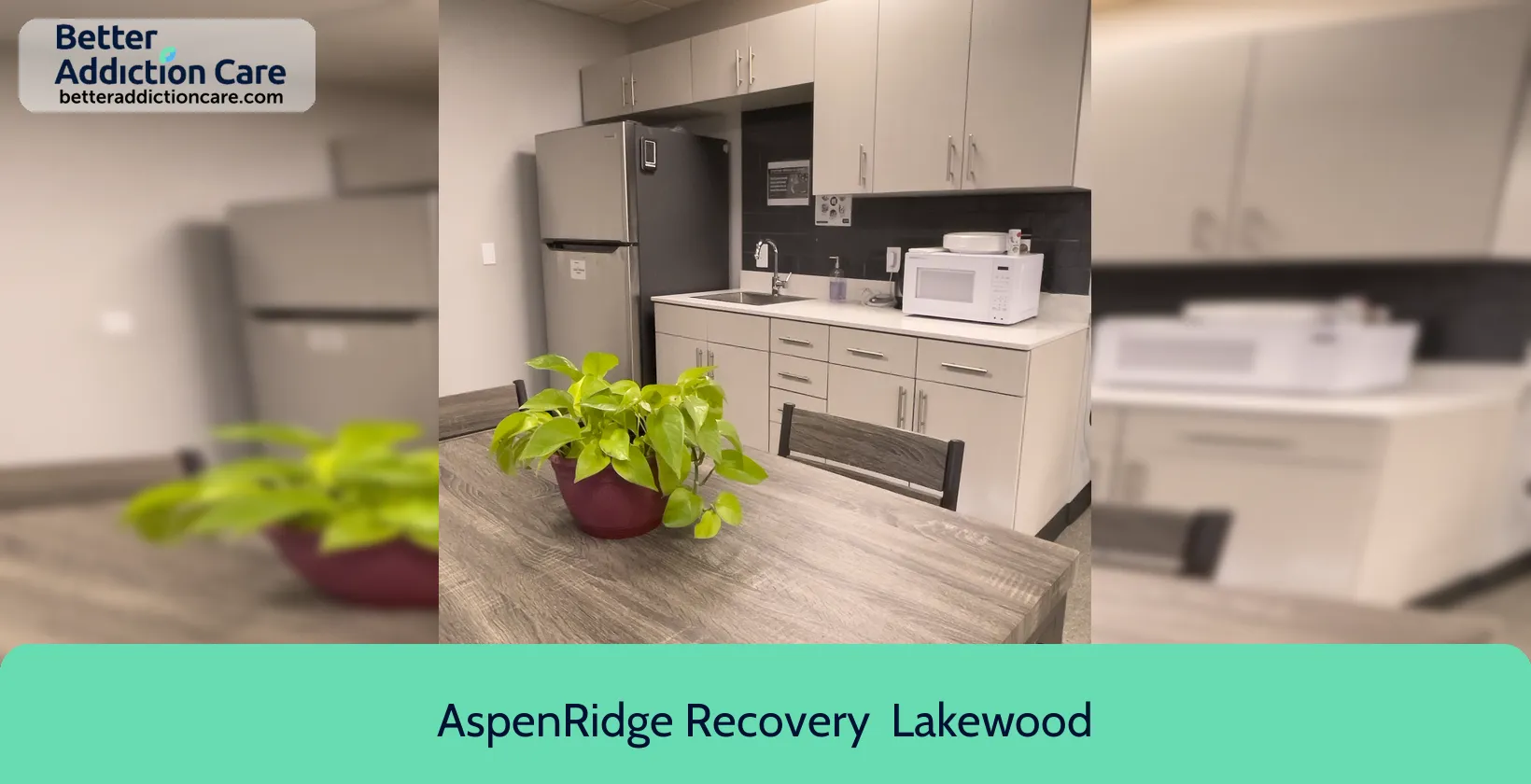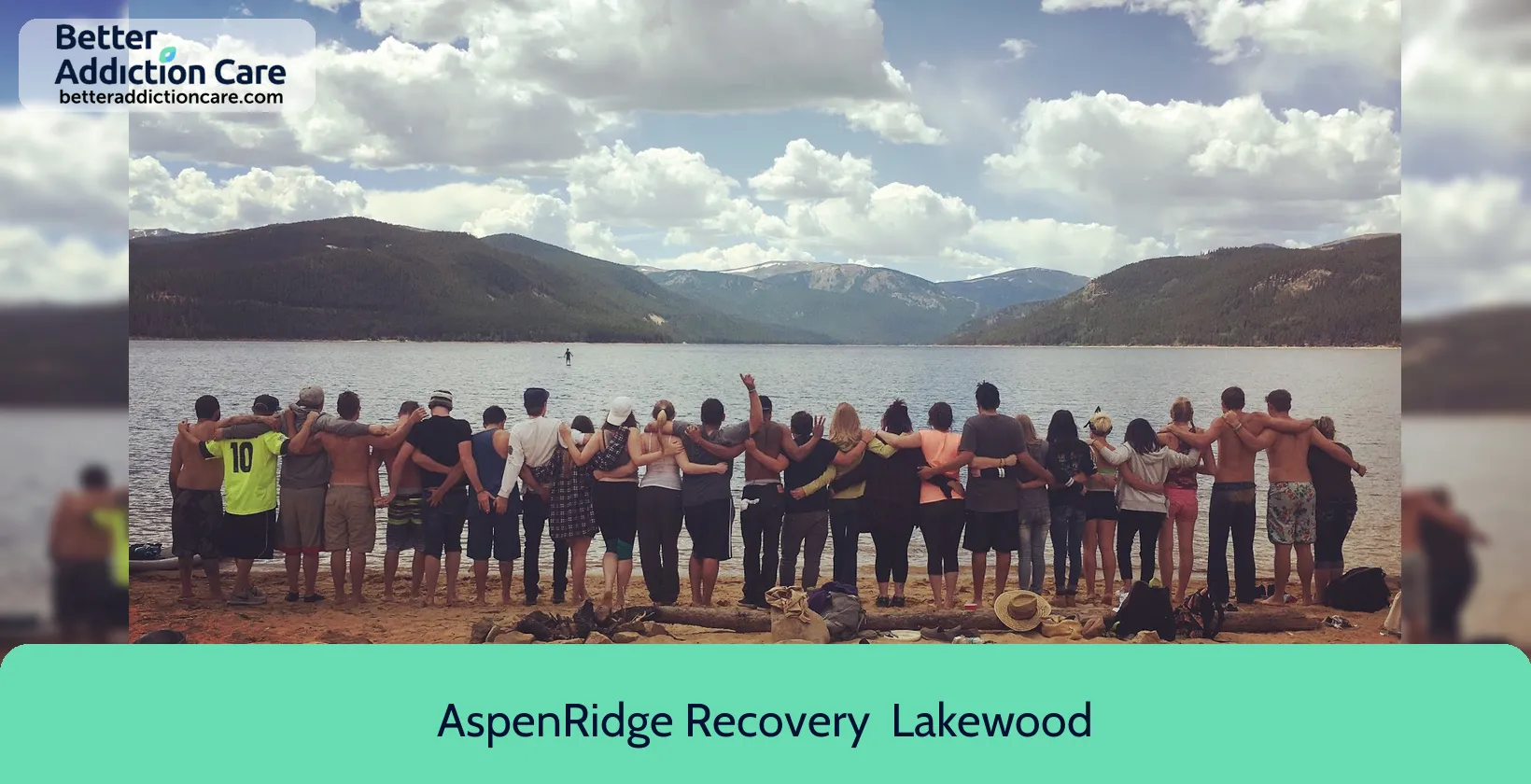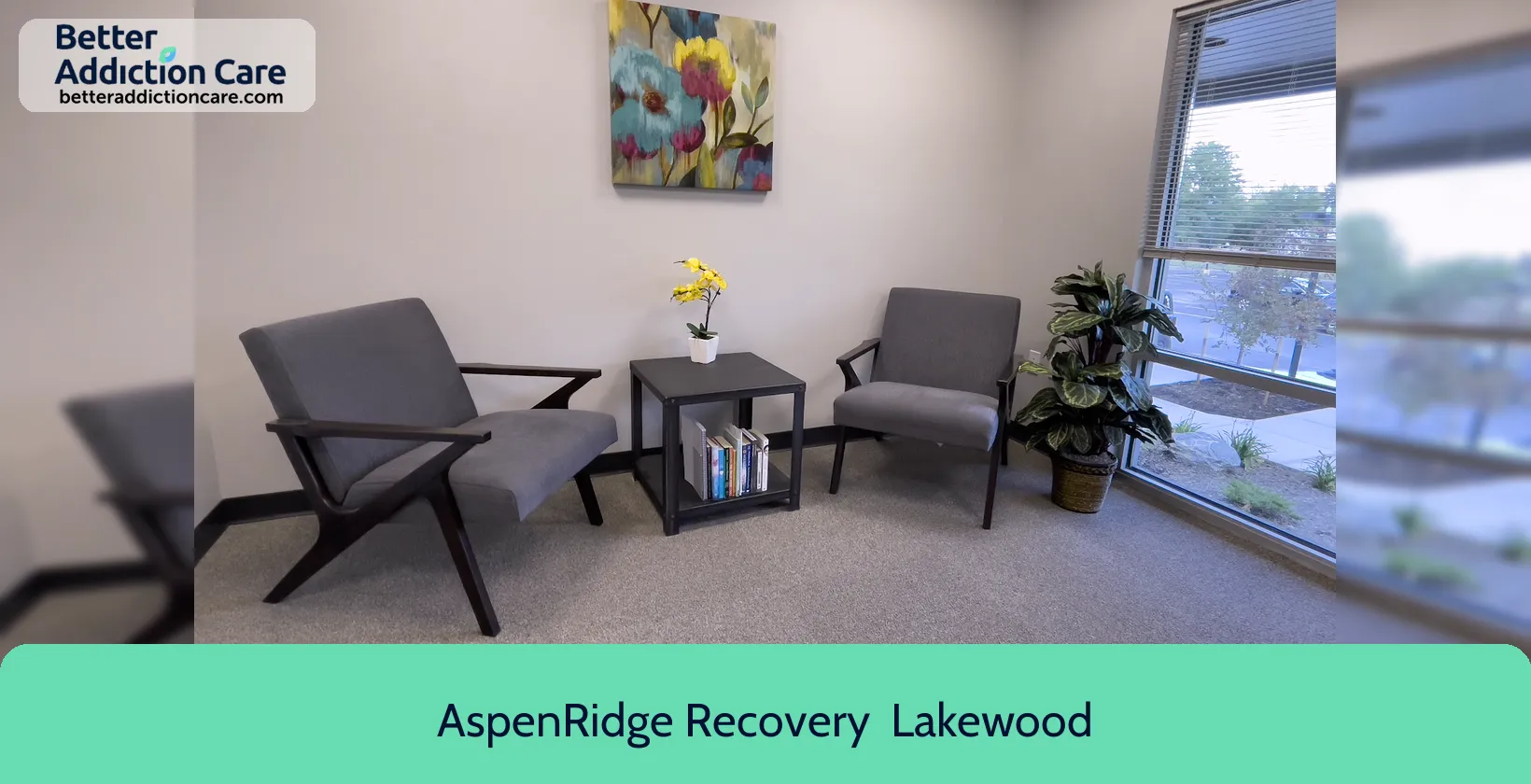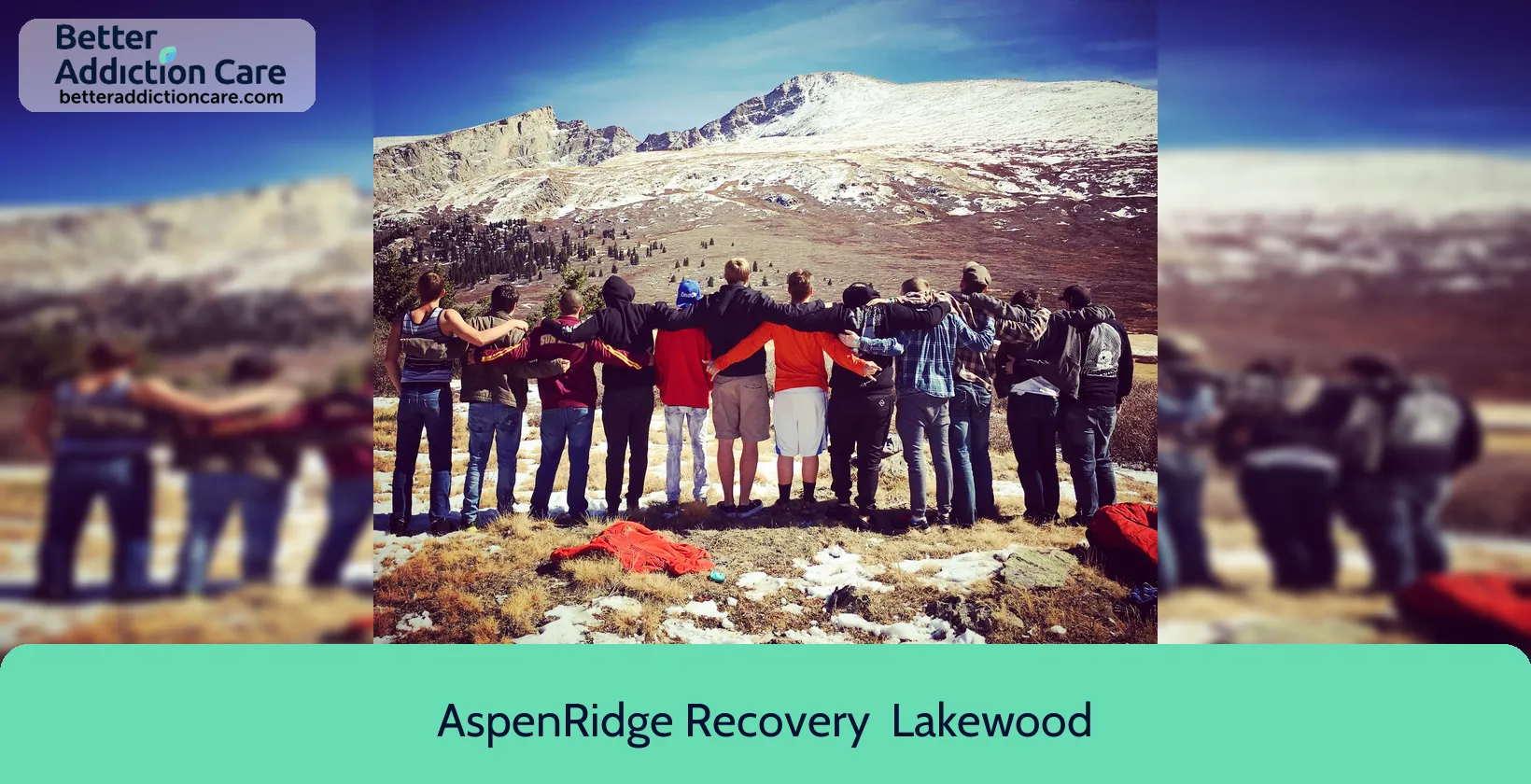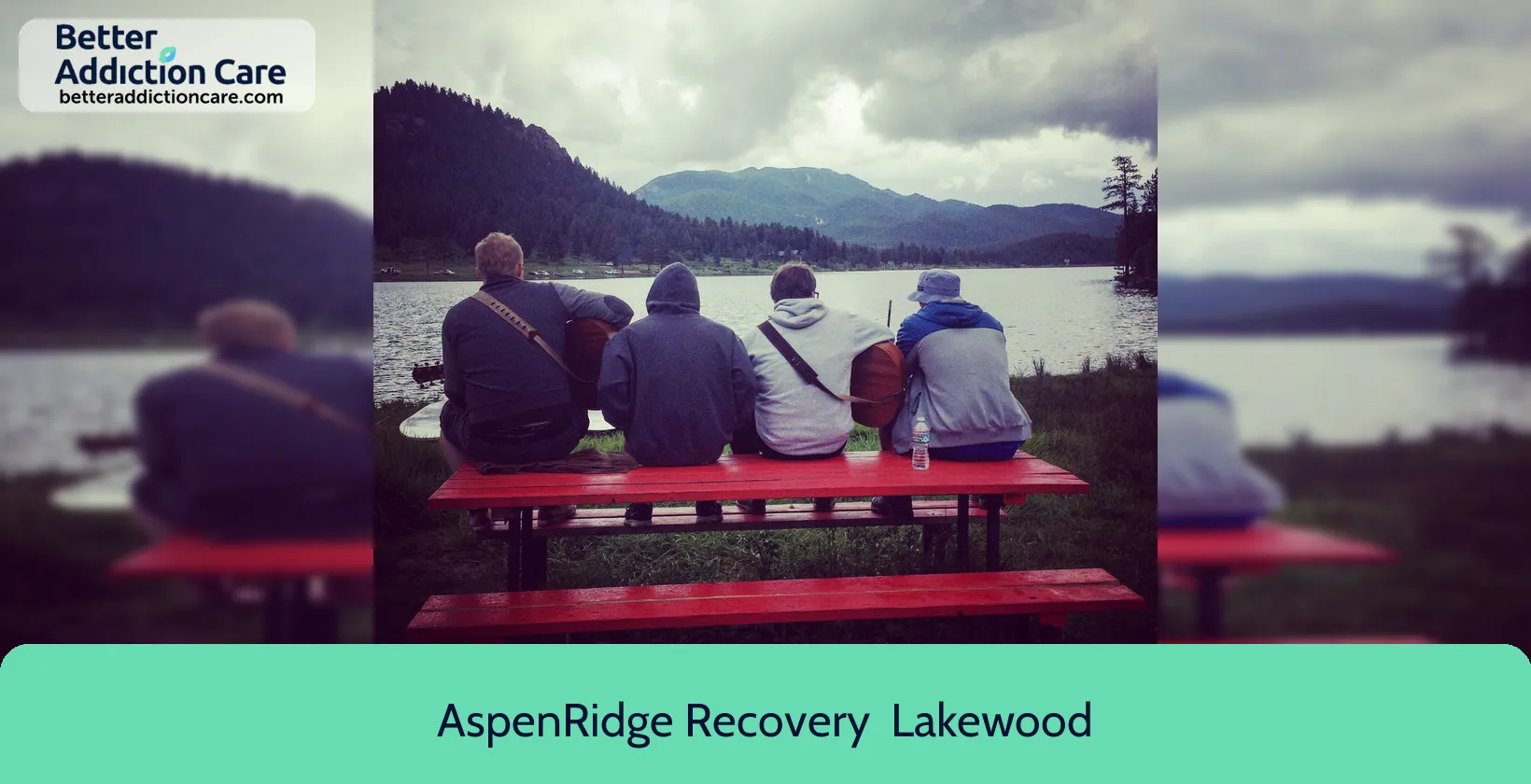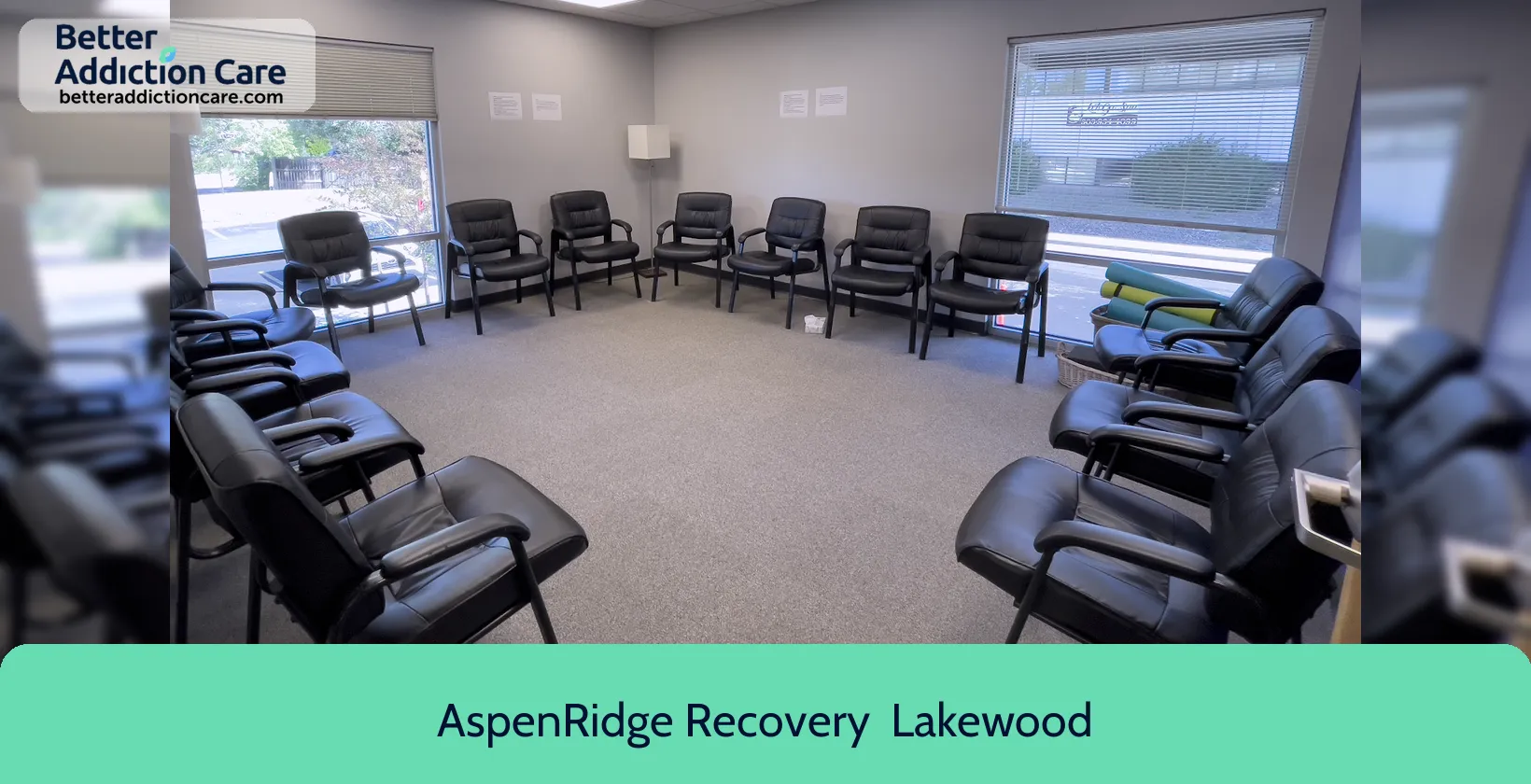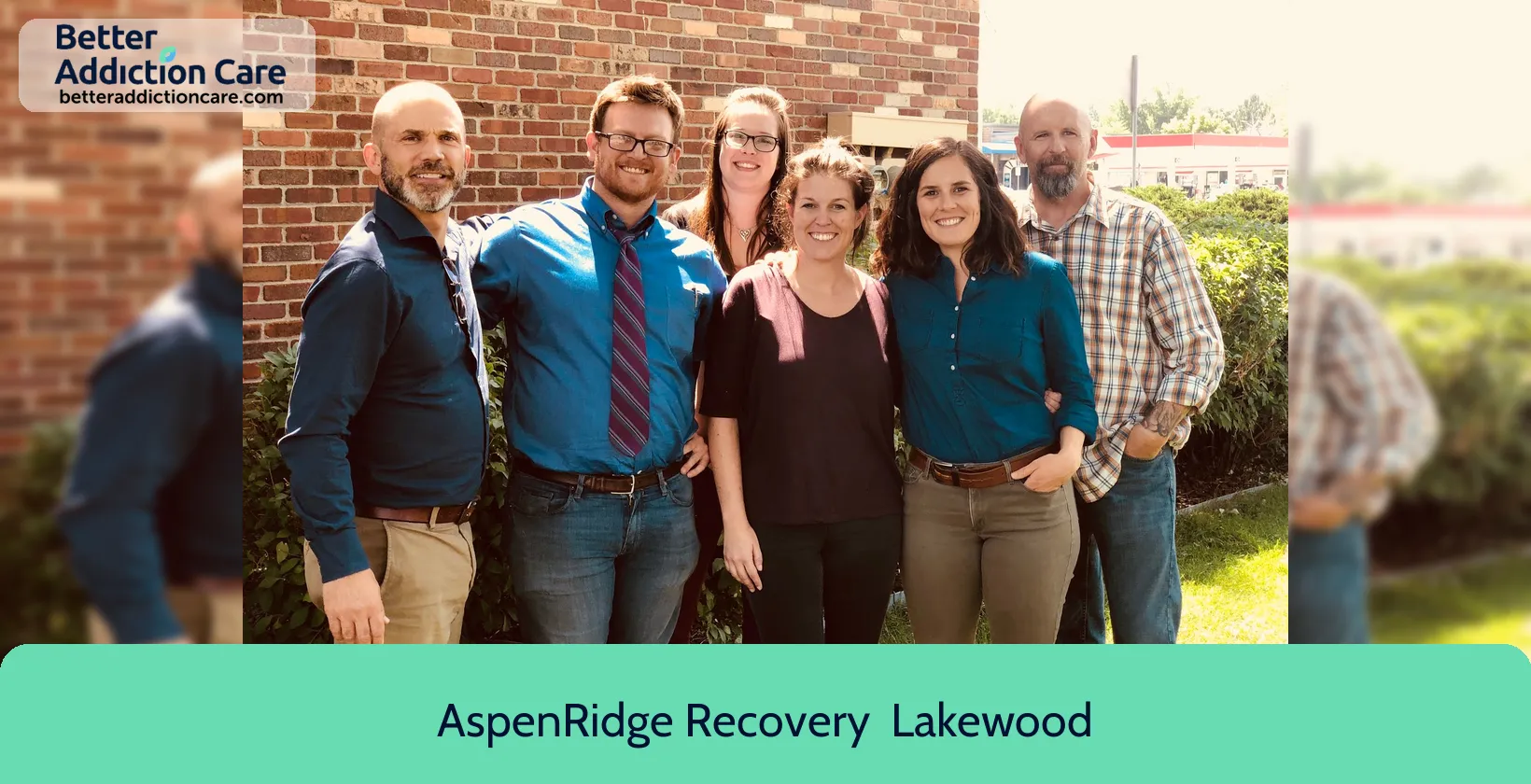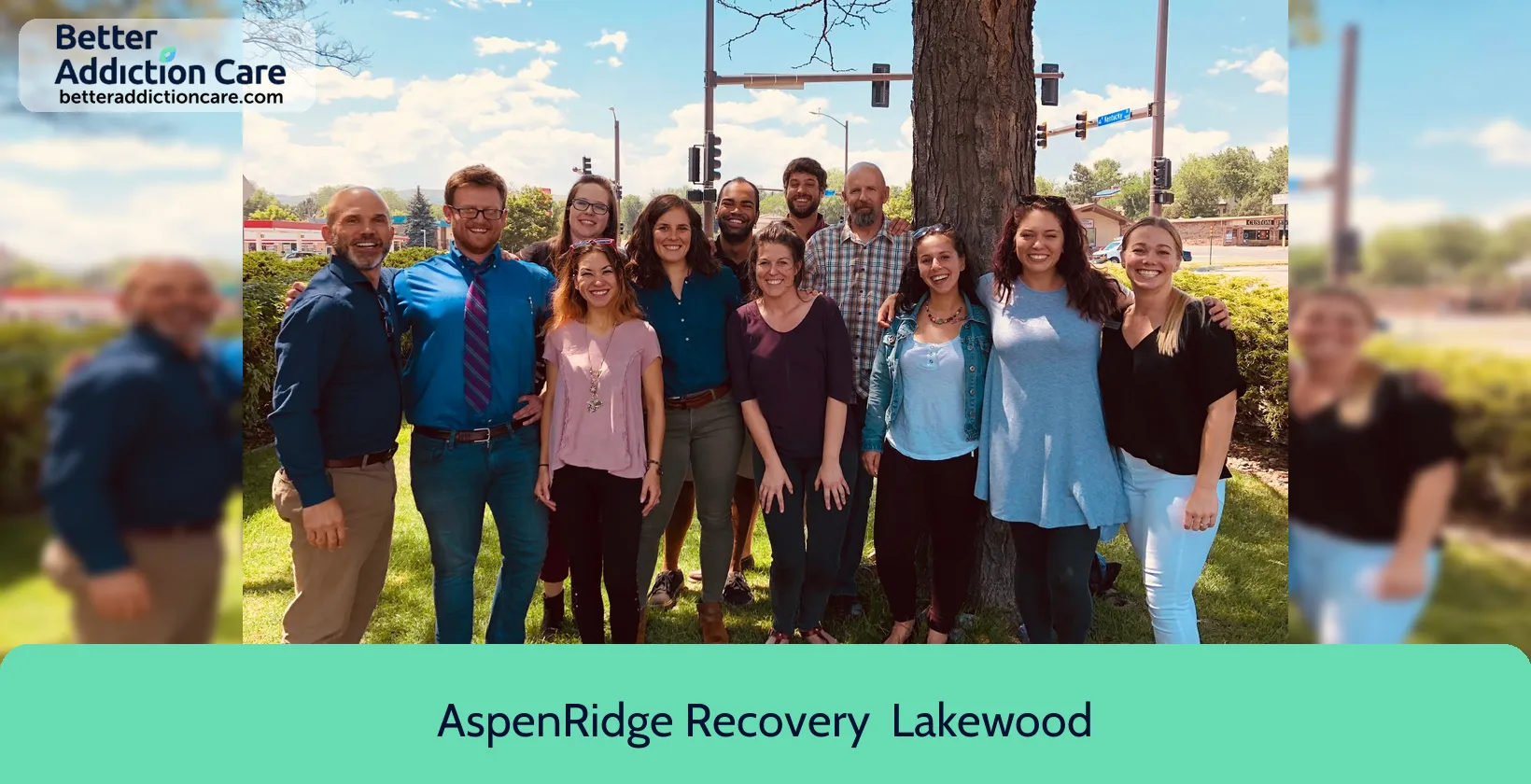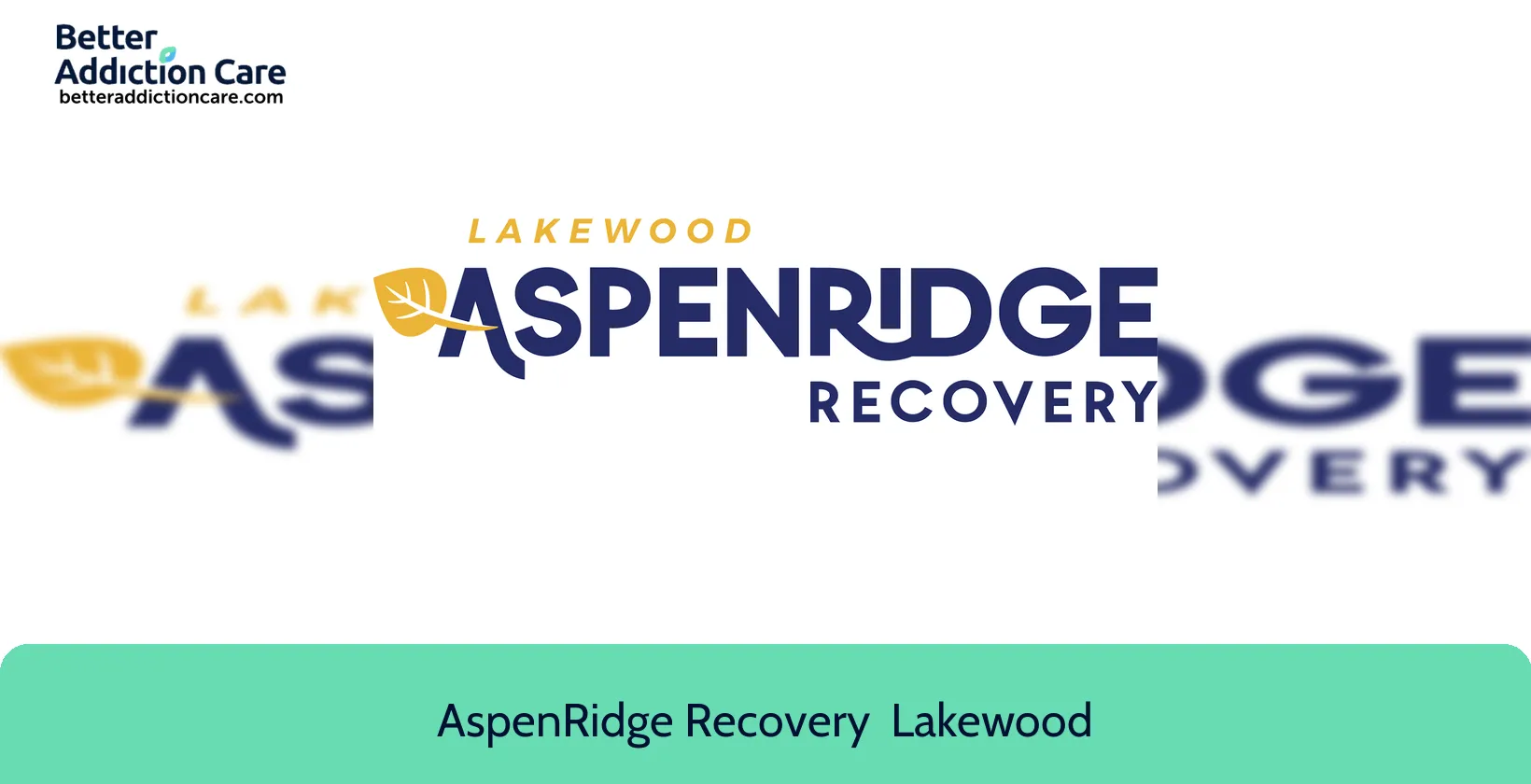AspenRidge Recovery - Lakewood
Overview
AspenRidge Recovery - Lakewood is an accredited substance abuse treatment center that provides outpatient treatment for men and women between 18 and 65+ years of age. As part of their special programs, AspenRidge Recovery - Lakewood treats clients with co-occurring pain and substance use disorders and clients who have experienced trauma. To help patients achieve sobriety, AspenRidge Recovery - Lakewood provides intake assessments. Afterward, patients receive cognitive behavioral therapy, telemedicine/telehealth therapy, and substance use disorder counseling during treatment. AspenRidge Recovery - Lakewood is located in Denver, Colorado, providing treatment for people in Jefferson County, accepting cash or self-payment, medicare, and state-financed health insurance plan other than medicaid.
AspenRidge Recovery - Lakewood at a Glance
Payment Options
- Cash or self-payment
- Medicare
- State-financed health insurance plan other than Medicaid
- Private health insurance
- Federal military insurance (e.g., TRICARE)
Assessments
- Screening for tobacco use
- Comprehensive mental health assessment
- Comprehensive substance use assessment
- Screening for mental disorders
- Screening for substance use
Age Groups
- Young adults
- Adults
- Seniors
Ancillary Services
- Case management service
- Suicide prevention services
- Mental health services
- Transportation assistance
Highlights About AspenRidge Recovery - Lakewood
7.34/10
With an overall rating of 7.34/10, this facility has following balanced range of services. Alcohol Rehabilitation: 8.00/10, Drug Rehab and Detox: 8.15/10, Insurance and Payments: 6.00/10, Treatment Options: 7.21/10.-
Drug Rehab and Detox 8.15
-
Alcohol Rehabilitation 8.00
-
Treatment Options 7.21
-
Insurance and Payments 6.00
Accreditations
The Joint Commission:

The Joint Commission accreditation for addiction and behavioral health is a prestigious recognition signifying a facility's commitment to delivering high-quality care and safety for individuals dealing with substance abuse and mental health issues. It involves rigorous evaluations and assessments, ensuring patients receive evidence-based treatment and exceptional care. This accreditation demonstrates a facility's dedication to continuous improvement and ethical practices, building trust among patients and healthcare professionals seeking top-tier addiction and behavioral health services.
Treatment At AspenRidge Recovery - Lakewood
Treatment Conditions
- Alcoholism
- Substance use treatment
Care Levels
- Outpatient
- Outpatient methadone/buprenorphine or naltrexone treatment
- Outpatient day treatment or partial hospitalization
- Intensive outpatient treatment
- Regular outpatient treatment
Treatment Modalities
- Cognitive behavioral therapy
- Telemedicine/telehealth therapy
- Substance use disorder counseling
- Trauma-related counseling
- Group counseling
Ancillary Services
Additional Services
- Pharmacotherapies administered during treatment
- Mentoring/peer support
- Breathalyzer or blood alcohol testing
Special Programs
- Clients with co-occurring pain and substance use disorders
- Clients who have experienced trauma
Get Help Now
Common Questions About AspenRidge Recovery - Lakewood
Contact Information
Other Facilities in Denver

6.86

6.83

6.68

7.31

7.19

7.19

6.94

6.83
DISCLAIMER: The facility name, logo and brand are the property and registered trademarks of Heritage Outpatient Treatment Services, and are being used for identification and informational purposes only. Use of these names, logos and brands shall not imply endorsement. BetterAddictionCare.com is not affiliated with or sponsored by Heritage Outpatient Treatment Services.
